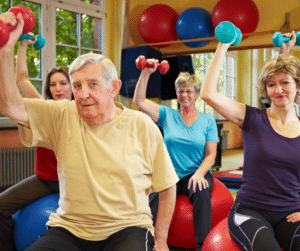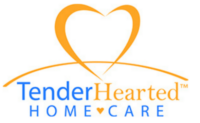Beyond Home Modifications: Preventing Falls Among Seniors

Stay Physically Active
Regular exercise is one of the most effective strategies to improve balance, strength, and coordination, all of which are important in avoiding falls. Tai chi, yoga, and pilates increase stability and flexibility, while resistance training strengthens muscles. Even basic workouts like walking or water aerobics have an impact. Seniors should meet with their healthcare physician or a physical therapist to create a specific exercise regimen based on their abilities and goals.
Manage Vision and Hearing
Good eyesight and hearing are required to navigate the environment safely. Seniors should get frequent eye exams to update their prescriptions and check for problems like cataracts and glaucoma. Similarly, treating hearing loss with hearing aids or other interventions can assist them in detecting auditory cues that alert them to potential hazards, such as an oncoming car or someone drawing their attention to a step.
Review Medications
Some medications or combinations of medications might produce dizziness, drowsiness, or a reduction in blood pressure, all of which can heighten the risk of falling. Senior home care can help seniors review their prescriptions and encourage them to talk with their doctor or pharmacist about any concerns they may have. Additionally, seniors should keep track of any side effects to help them manage or reduce issues that might affect their balance.
Concentrate on Nutrition and Hydration
Adequate diet and hydration have a surprising impact on fall prevention. Malnutrition can produce muscle weakness, and dehydration can cause lightheadedness. Seniors should eat a well-balanced diet high in calcium and vitamin D to maintain bone health. Staying hydrated during the day is important as well. Senior home care can encourage this by reminding seniors to drink, even when they might not be thirsty.
Wear Appropriate Footwear
Choosing footwear that fits well and provides adequate support can considerably reduce the likelihood of slips and trips. Non-slip soles are also important, as are shoes that fit snugly to avoid stumbling. Additionally, seniors should avoid going barefoot or in socks on slick surfaces, or if need be, wear socks that are non-slip.
Use Assistive Devices
While seniors might try to avoid using assistive devices, they are key to keeping them safe. Senior home care can encourage their use, as well as make sure the devices “fit” well. For instance, when using a cane or walker, it is important to make sure it is the appropriate height and in good condition. Additionally, devices such as reaching tools or non-slip mats can help with daily tasks while decreasing strain and potential hazards.
Stay Connected and Informed
Isolation might cause decreased physical activity and a lost opportunity to address possible threats. Joining community classes, support groups, or fall prevention programs encourages social interaction while also providing seniors with skills and knowledge.
By incorporating these strategies into their everyday routines, seniors can considerably minimize their risk of falling, enabling greater independence and confidence in their activities. Senior home care can help them as they work through these tips to see which ones might be best.
If you or an aging loved one are considering Senior Home Care in Cleveland, NC, contact the caring professionals at TenderHearted Home Care today. Call us at (704) 612-4132
- Seniors and Unreported Falls - May 22, 2025
- Six Areas Your Loved One May Need Help With During the Early Stages of Alzheimer’s Disease - May 8, 2025
- What Harms Senior Mental Health? - April 23, 2025

